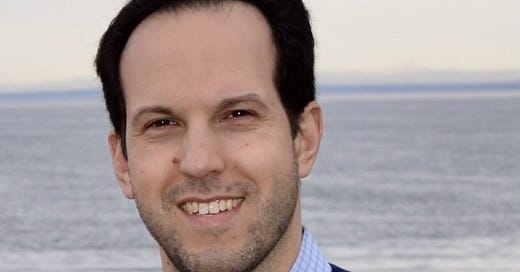Inside the Only Music Fund Family Offices Take Seriously
When everyone else was chasing sync, Sam Hendel was building a proprietary music rights platform with Universal.
From Culture to Capital - The Hendel Family Office Origin Story
Sam Hendel didn’t “pivot into music”. He was born into it.
His father bought the Knitting Factory in 2000, saving the iconic venue from collapse. His mother, Ruth Hendel, is a Broadway producer (American Idiot, High Fidelity) with 12 Tony Awards to her name.
Between them, they built Partisan Records, home to Cigarettes After Sex and Idles. “We were always storytellers,” Sam says. “Now we just do it with capital.”
The Deal Family Offices Wish They Had
Hendel’s first major play wasn’t incremental.
It was a $1.1B off-market acquisition of KMR2, a catalog that includes The Weeknd, Stevie Nicks, David Guetta, and Jimmy Jam & Terry Lewis. It wasn’t marketed. There was no pitch deck.
“We didn’t pitch this. We executed it,” he says.
The Platform LPs Actually Want
Unlike most funds passively chasing royalties, Hendel partnered directly with Universal Music Group, not as a counterparty, but as a strategic buyer.
“We’re their internal buyer,” he explains.
His firm operates inside the UMG ecosystem, acquiring catalogs and optimizing them with the full weight of UMG’s distribution and marketing engine.
“Recorded music is where the leverage is. And we have it.”
Yield With Narrative - Why Family Offices Lean In
For allocators looking for uncorrelated returns, Hendel's thesis hits differently.
“Music is SaaS without the churn,” he says. “Recurring, global, durable.”
But what truly resonates with artists, and by extension, long-term investors, is stewardship. “We’re not just paying for cash flow. We’re paying for the right to tell their story.”
The result? An asset class that delivers both cash yield and cultural permanence.
More importantly for family offices: the net operating income (NOI) from music catalogs, particularly with active rights management, is not only uncorrelated to GDP but exhibits far lower volatility than traditional real estate.
Multifamily and commercial properties are deeply cyclical. They’re impacted by interest rates, inflation, and tenant churn.
By contrast, streaming revenue from music is diversified across millions of microtransactions monthly, global in nature, and resistant to economic downturns. As Hendel puts it: “There’s no vacancy in a Spotify stream.”
How to Play It (If You're a Family Office)
Hendel’s not seeking tourists.
Ideal checks are in the $10–20M range, but cultural alignment matters more than volume.
“Don’t build your own platform,” he advises. “Join one that’s already operationally fluent.”
With over $2B under management and $1.7B in bottom-funnel deal flow, Hendel’s firm is on track to cross $3B by year-end. And unlike other funds, this one isn’t selling access to fame. It’s offering a permanent home for the music that moves the world.
Investor Typology: Who’s Really Playing This Game
If you're allocating into music, it helps to understand who your co-investors are gonna be:
1. Tourists: These are the folks who saw the Hipgnosis headlines, got starry-eyed about sync revenue, and rushed in without understanding how rights administration actually works. They chase flashy catalogs, don’t build operational capabilities… and are usually gone after one fund cycle.
2. Financial Engineers: These buyers come from, well, traditional PE. They’re sharp with spreadsheets… less so with story. They love cash-on-cash IRR and will buy whatever they think yields best. But with competition heating up and publishing assets compressing, they’re starting to get priced out, especially on recorded rights, which require real infrastructure - global distribution, rights administration, sync licensing teams, catalog marketing, and artist relations. Most PE firms don’t have these capabilities in-house. And building them ain’t fast or cheap.
3. Operators with Narrative Infrastructure: This is Sam' Hendel’s category. He’s not just buying yield; he’s building a machine. What sets him apart isn’t just that he has Universal’s pipes, but that he understands the second life of an asset. He can tell a story around a catalog and extract more from it than anyone else can. That’s not a financial strategy. That’s a worldview. And that’s why I really dig hanging out with guys like Sam.
Checklist: Is Your Capital Cultural?
Before deploying into music, ask yourself:
Do you understand how recorded rights create compounding value through marketing and storytelling?
Can you articulate the difference between a passive catalog buyer and a rights operator?
Are you building a platform that serves artists, not just LPs?
Can you explain, with confidence, how your capital supports legacy preservation as well as financial return?
If you can answer yes to these, you’re not just allocating into music. You’re building cultural equity.




